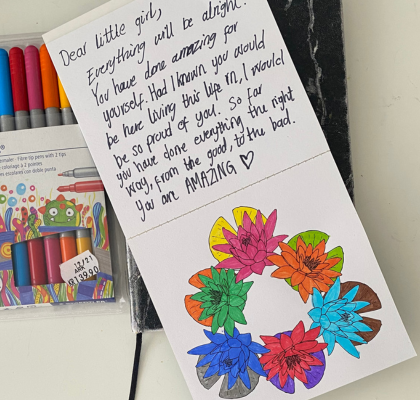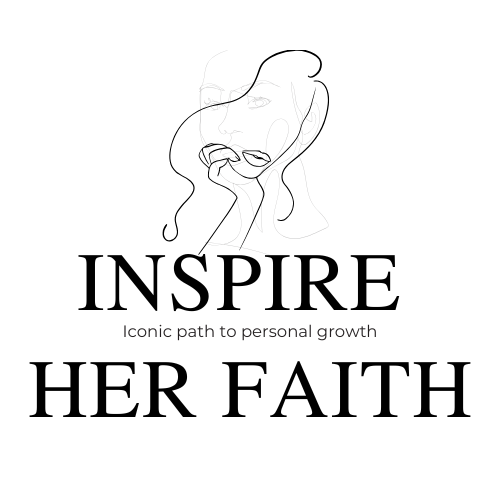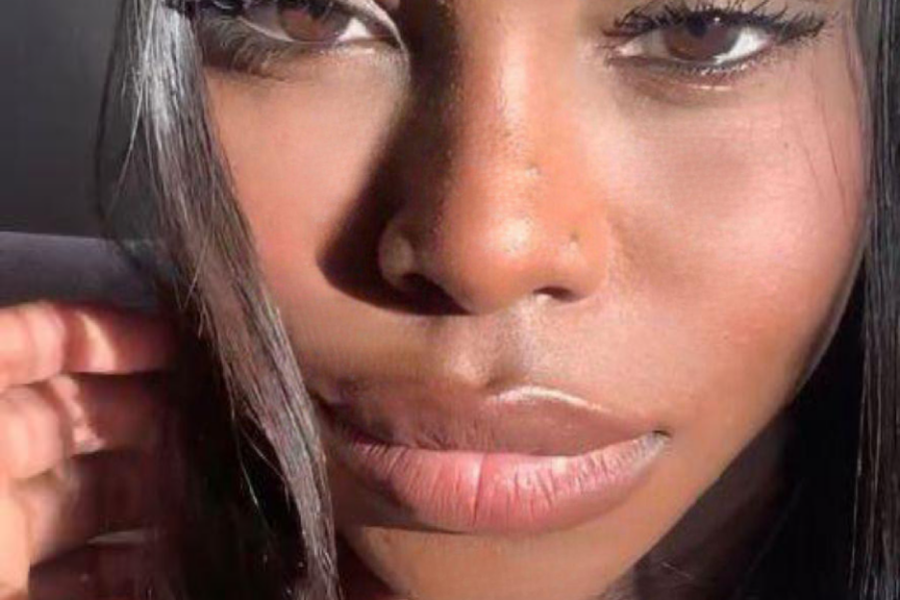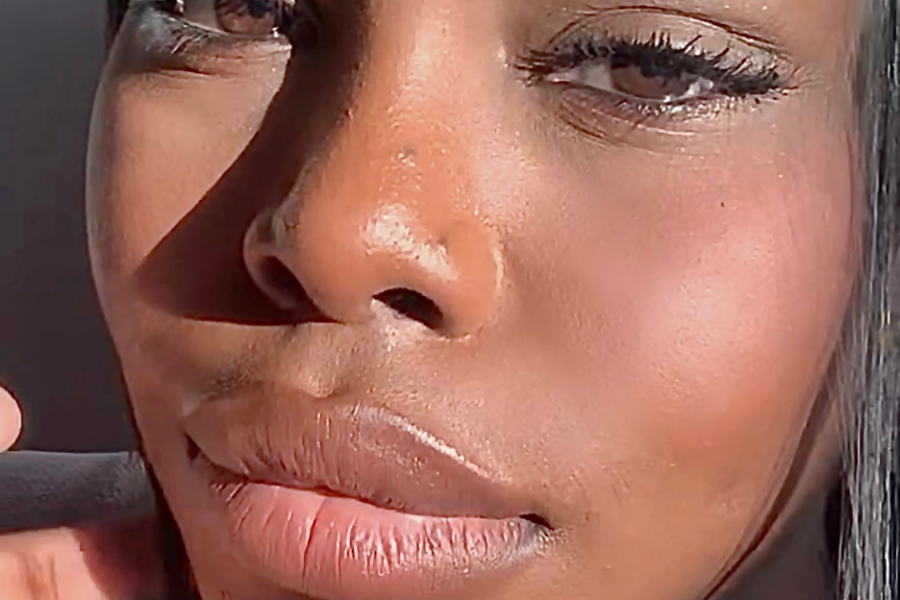Growing up in a small town in Norway with my parents, I never missed to practice Islam, ie. worshipping Allah and studying the Quran with my parents. My parents ensured we received a thorough education throughout my childhood.
Being raised this way allowed me to learn from a very young age how to behave and respect both my elders and my peers. This awareness was invaluable at that age, as it taught me several important life lessons. I learned to reflect akin to mentality, injustice, cultural differences and my religion to mention a few, on the basis of my upbringing.
We were raised in an Islamic country, and our household was deeply rooted in our religion. This sometimes made it difficult to be what you might call a “normal kid,” in a country where children my age were often raised in a completely different manner. At times, I felt like a total outsider.
During my childhood, I often wished my parents would be softer on us, especially since I was just a kid. I believe some parts of my upbringing have caused childhood trauma that I am unlearning and healing from even till this day. I was treated differently in my home country compared to my childhood in the West, and I favor the treatment in Africa more. I believe it is because I was just a child and loved by everyone.
Sometimes, I cannot comprehend how cultural differences has allowed certain things to happen and how it sometimes enabled bad behavior among the elders I was surrounded after we left Sudan (my birth country). They were not vile people; I later learned they only did the best they could. They are great and kind people. I only disagree with some of their parenting techniques which I knew were all rooted with culture.
Over time, I learned to see my parents as humans. It took me a while to realize that they are not just my parents who raised me, but also individuals with their own limitations. So, I don’t blame them. I believe they did their best, especially considering their circumstances.
Overcoming Cultural Challenges: A Journey Back to Faith and Understanding
I had a chat with a friend the other day where we discussed the topics I am writing about today. Our parents are just humans, trying their best—some more than others. We must see it from this perspective:
after facing critical circumstances, our mothers and fathers were forced to move from their home countries. This led them to end up in the West, where they likely experienced regular discrimination, racism, language barriers, cultural and religious differences, and work-related challenges. Most also had children to care for along the journey. Government assistance is not always helpful for most families, and we must not forget these challenges they all face at some point as adults with lots of responsibilities.
I believe that leaving war-torn countries is going to affect you somehow, especially if you have to start anew in countries where you’re not wanted or desired. I also believe our parents have an unseen battle within their hearts that they are too proud to share with us. Generally speaking, we tend to develop bad habits in our households, such as avoiding hot topics like for example “how we feel about this and that”.
Moving out of my family home in my early teenage years dramatically changed my perspective. I had no idea how troubled our world was. I was quiet, shy, and naive until I met my friend at age 15. For the sake of this story let´s call him Ali.
At the time I did believe in higher powers, but without my parents reminding me to pray every day and giving me Dawah (advice and guidance according to Islamic law), I felt lost. I quickly developed a habit of neglecting my prayers, forgot my native language (Arabic), and gradually forgot the holy scripture of the Quran.
Eventually, my religious knowledge and belief faded. Allah (SWT) took me away from practicing, but I still had that fear and that sense of belonging with Him. I never felt alone. Allah (SWT) was always there guiding and protecting me miraculously, that if I told you, you would not believe it.
I fell into a light depression-like emotion and felt isolated. All I did was go to school, shop, eat, sleep, cry, and rarely leave my bed. Occasionally, I took vacations either outside or within the country. I would take myself out to dinners and cafes, alone. I wondered why Allah had suddenly given up on me—one of the many feelings I had at the time.
Never in my life had I experienced such loneliness and emptiness. In my adulthood, even if I am alone, I never feel alone. I must say, I have always appreciated solitude, so when I refer to the loneliness in my teenage years, I mean I was not in a perfect mental health state where being alone was the best option for me.
I lost the energy to even think about education, which was my parents’ goal for me. They wanted me to become something they could be proud of, something beneficial for me in the long run. They also wanted to brag about the fact that I had a diploma. They were not wrong, as I do cheer for everyone taking the safe road to higher education.
I sometimes imagine how it would have been if I had just listened to my parents and enrolled in a university straight out of high school. However, that path was not meant for me.
I love the quote: “They planned, but Allah also planned. And Allah is the best of planners,” which reflects well on my entire life journey. The Almighty has His own plans for me that no one could have foreseen, which leads me to one of my favorite Islamic quotes: “There are no missed opportunities. Everything you missed wasn’t yours”. I love this quote so much.
“They planned, but Allah also planned. And Allah is the best of planners“
Surah Al-Anfal – 30
As I face challenges such as depression-like feelings, low self-esteem, loss of motivation, loss of family members, loneliness, school difficulties, and losing faith, life feels like a punishment. No one could see or tell that I was dealing with all these challenges. Not a single person knew until I said something.
I was always smiling, compliant, relaxed, humble, and seen as a kind, innocent kid. Even today, it is impossible for others to see my struggles. When I tell them something is wrong, especially mentally, they are all shocked.
My life and how I live come across as pleasant to most people around me, but they do not see the battles I face. They do not see all the efforts and hard work I put into myself.
I want to heal, not just for my own satisfaction, but also to be somewhat “useful” on this planet. Allah did not breathe life into my soul for me to give up on myself. Giving up on myself means giving up on this entire Ummah (our nation). I feel a sense of responsibility and urgency to help. I am not quite sure who I am supposed to help, but I am certain Allah is guiding me on the right path in this world. These are all thought I had as a teenager.

Finding Strength Through Therapy: A Teen’s Journey of Healing and Self-Discovery
A little time went by, and I finally started therapy at age 14. Saying that this was a learning curve for me is an understatement. I got to talk with grown-ups who had their lives together and were educated to deal with the emotions I was experiencing. These people taught me how to manage strong emotions.
I am an introspective person with many thoughts and feelings that can become intense at times. I feel very strongly, but I have since learned to handle those emotions with composure. I hide it well, which is why no one in my close or distant circle knows about this. In fact, no one knows anything about what I write about.
I can’t recall exactly, but I believe I had more than ten different therapists in less than a decade, which equals roughly one therapist each year. However, I only went to therapy for less than four years.
I learned the hard way that it takes a while to find a therapist who connects with and understands you and all the baggage that comes with it. I just couldn’t find the peace or safety to speak freely, as this was not something I was accustomed to in my family home.
Whenever I attempted to express how I felt, I ended up in trouble. So, I naturally avoided discussing my emotions while going through puberty—the most vulnerable time of a young girl’s life.
Therapy helped me immensely throughout my teenage years. It was probably the best-case scenario for me, as I learned how to accept my feelings and my past, and to forgive my parents, not for them, but for myself—just to be able to move on with my life.
I was given multiple cognitive homework assignments, which I hated, but I now understand why they were such a huge part of my sessions. I needed to be compelled to reflect on each topic my therapist and I had discussed, as I was in such a vulnerable state of mind where I was likely to suppress these memories after all the trauma I had already been through.
Unfortunately, I never learned these topics at home. I felt jealousy among my peers as they were so comfortable talking to their parents about almost anything. Their worries seemed so small compared to mine.
I couldn’t understand how they could complain when they had the best childhoods. I often wished to switch lives with them, but that would have changed the plot completely, and I would not have become the strong, compassionate, and knowledgeable individual I am today (if I dare say so myself).
All I wanted was to be heard, understood, and appreciated for who I am. I felt like I was suffocating at times.
I haven’t even begun to go into details about my life before my early teenage years. My hardships were not easy, but surely there was ease that came with them. Quoting the Holy Quran: “With hardship comes ease.”
This simple verse helped me to reflect better, and now I can understand a little more. The famous verse (from the Quran) among Muslims gives us hope that when there is hardship, challenges, and tests in our lives, we should be grateful because Allah Azzawajal only tests those whom He loves, and the test will come with a way out of it to alleviate ourselves.
When a Muslim goes through hardship, it will come with prescribed ease. So, we must be grateful to even be tested by the Almighty.
Had it not been for the calamities, tests, tribulations, and one good Muslim friend, I believe things would have turned out terrifying and different for me at the end. Allah guides those whom He wishes to guide.
I am honored and grateful that He never gave up on me, as He put so many different people in my life, each for their own specific purpose. I see it clearly now than I have ever before. These are topics I will discuss further, and more detailed in my upcoming articles.
Allah has promised His servants:
“For indeed, with hardship [will be] ease”
Surah Ash-Sharh, 94-5
Embrace His promise. Do not give up even if the pain seems never-ending and you feel worn out from carrying it all. There is relief and something even greater waiting for you just around the corner.
– globalsadaqah
The Power of Prayer and Supplication in Islam
Reading the Quran and staying committed to my prayers has been a game changer! I use an app to keep track of all my prayers. This app is amazing; it counts down from hours, minutes, and seconds until the next Salah is due. I downloaded it last year on a colleague’s recommendation.
The app allows me to plan my daily routine based on prayer times. There are many helpful widgets in the app where you can find Duá, Allahs 99 names, a compass, daily expressions, Hatith and the list goes on.
The best part about this app is that you can learn how to pray correctly according to Sunnah. Perfect if you are a revert or a born Muslim looking to perfect your prayers.
You can find it in AppStore by searching: iBonn. If you are not able to find it, I am sure it is because of your region as this app is linked to my masjid in Norway. I am however sure there are many similar apps depending on your location.
Salah relieves you from all worldly worries and stress. It allows you, as a Muslim, to communicate and listen to Allah and follow the Sunnah of our beloved Prophet (PBUH).
As Muslims, we have no excuse to skip prayer; literally, there are no excuses. If there is no water to purify, the earth itself is made a purifier, so we can perform Tayammum. If you’re not in a place where you feel you can pray, Islam says that you must find a place where you can pray. If you cannot pray standing up, you must pray while sitting. If you cannot pray because you are paralyzed on your back, you must pray on your back.
Salah is never to be abandoned by a Muslim. Salat is the primary distinction between a Muslim and a non-Muslim. The very first thing Allah will ask us about is not our deeds, how good we were to others, our zakat, Hajj, fast, or Umrah. The very first thing Allah will ask us about is our prayers. Our Prophet (PBUH) said to this Ummah (our nation) that “the entire planet earth has been made for me and my Ummah a Masjid and a purifier.” When the time of prayer is due, everyone must pray.
As soon as I clearly understood the importance of Salat, I started planning my days around Salah seriously. And all my worries suddenly disappeared, one by one, SubhanAllah. The problems I struggle with today are not unusual for any Muslim girl in the West; it’s normal. I am happier, more satisfied, grateful, and I feel pure in a sense. I cannot skip my Salat anymore; I need it, my soul needs to communicate with Allah five times a day at a minimum.
The second step I took was to make Duá. Duá is a form of supplication (worship) that Muslims can do without purification (wudu, ghusl). You can make Duá to Allah anytime of the day wherever you are (except the bathroom). You can make Duá while standing, on your back, from the bed, in sujood, at school/work, in nature, at the gym, in your car—literally anywhere.
When making Duá, you are initially calling out to Allah. So, do it beautifully and with care. Start by glorifying Allah and sending salawat on our beloved Prophet (SAW), and his family and friends. You are asking Allah for something specific.
For us Muslims, Duá is an act of worship in which we ask Allah for His forgiveness and mercy, to grant us His favors, and to answer our requests. My biggest tip with Duá is to be patient, consistent, and specific. Ask Allah for what you want Him to answer in a way that, after you are done, you have so much trust and Tawakkul in Allah that you believe your Duá is being answered. A Muslim can ask about anything, which is good, from Allah (SWT). A car, to pass exams, your dream job, wealth, wisdom, healing etc. Anything (which is good).
Allah answers all Duá from Muslims in three different ways:
- He gives what is asked for swiftly.
- It is stored for the person as a reward in the Akhirah (afterlife).
- It is used to fend off equivalent harm from the person.
This is our religion, and how beautiful it is, SubhanAllah. We are so loved, but we have no idea exactly how much. Duá is not even the best example to use in understanding how much Allah cares for us both in this Dunya (our world) and the Akhirah (afterlife).
In addition to prayer and supplication, one of the most profound ways to heal and strengthen your faith in Islam is through attending khutbah´s. A khutbah is delivered by what we refer to as the khateeb, usually held in a masjid, and it serves as a crucial element in our spiritual growth and understanding of Al-Islam.
Khutbah´s provide us with an invaluable opportunity to reconnect with our faith. They are not “religious rituals” but are moments of reflection and learning. The khateeb often addresses current issues, providing guidance on how to navigate them through the lenses of Islamic teachings.
This makes khutbah´s an essential tool for staying updated and informed about our religion. We have access to these teachings from our phones on all social media platforms in our generation.
This is the power of technology. In just a decade ago, we did not have access to such from our phones. You would have to physically attend these classed at your local masjid. Now, we can wake up, pick up our phone and open YouTube to watch an entire khutbah from the comfort of our homes.
Attending Khutbah regularly can significantly increase our Iman (faith). When we listen to the words of wisdom from our religious leaders, we are reminded of the principles and values that Islam upholds.
These reminders are crucial, especially in a world full of distractions and challenges. They help us realign our lives with the teachings of the Quran and the Sunnah, essentially fostering a deeper connection with Allah.
The importance of seeking knowledge in Islam cannot be overstated. The Prophet Muhammad (SAW) emphasized the significance of learning and acquiring knowledge.
He said, “Seeking knowledge is an obligation upon every Muslim” (Ibn Majah). When we attend Khutbah, we are fulfilling this obligation. We are not only gaining knowledge but also learning how to apply it in our daily lives, which ultimately benefits us both in this world and Akhirah (afterlife).
The reward of learning and applying Islamic teachings in our lives is immense. When we strive to understand and implement the lessons from a khutbah, we are essentially working towards becoming better Muslims.
This continuous effort to learn and grow in our faith is greatly rewarded by Allah. It helps us stay steadfast in our religious practices and inspires us to lead a life that is pleasing to Him (SWT).
Moreover, Khutbahs help us stay motivated and inspired in our religious journey. Listening to the khateeb in masjid allows us to gain different perspectives and insights. It rejuvenates our spirit and motivates us to be more diligent in our worship and daily actions.
The communal aspect of attending Khutbah also reinforces our sense of belonging to the nation (ummah). We are surrounded by like-minded people and therefore providing us with the support and encouragement we need to maintain our faith.
I have written a couple of paragraphs about two Khutbahs that have given me confidence and, most importantly, great knowledge along my journey of reconnecting with my faith and overcoming obstacles as a young Muslim girl living in the West. The khutbah in writing is long form. I would be happy to share the transcribed version with you. Just email me at [email protected] or comment your social media handles below and I will send it to you.
Here are the sources of the Khutbahs I am referring to:
Belal Assad’s khutbah about how Allah invites back His servants to the religion – “The 4 stages through which The Almighty Allah Azzawajal invites back a person who has drifted away from Him”. Click here for direct link on YouTube.
Prevail Islam video about the attributes of Allah, which I have also transcribed. Click here for direct link on YouTube.
Both have helped me in recent years to develop new habits of practicing my faith. These resources have been invaluable, especially considering that the internet was not as readily available back when I was a kid.
Journeying Back to Faith: Reflections of a Young Muslim’s Rediscovery
As I reflect on my journey of rediscovering my faith, I realize that reconnecting with Allah is not just a personal experience but a shared journey among many Muslims. It is not an easy, ready-set-go mindset; it’s filled with moments of loneliness and isolation, yet also brings refreshing insights and a deeper sense of connection.
During the initial stages, one might feel isolated due to this newfound feeling, but knowing that you aren’t alone can help overcome the day-to-day struggles on this path.
Through sharing my personal stories and experiences, I hope to offer guidance and support to those who may be on a similar journey. I’ve found strength and wisdom in the teachings of respected scholars like Belal Assad and resources like Prevail Islam’s videos, along with many great Khutbahs and inspiration from fellow Muslims.
These have been essential in helping me develop new habits of practicing Islam. Salah (prayer) and Dua´ (supplication) are essentially what I hold dearest to my heart as it will benefit any Muslim person to better their life and relationship with Allah.
As we continue on this journey together, we will explore how to reconnect with our faith, whether for the first time or once again, and how to strengthen our bond with Allah.
We will discuss the importance of seeking knowledge, staying updated on our religion, and understanding the rewards of applying this knowledge in our lives. By sharing our experiences, we can support each other in becoming better people for ourselves and others.
Conclusion
Creating this blog has been one of the best decisions I’ve made, as it allows me to reach and connect with many people around the world. My ultimate goal is to help as many women as possible reconnect with Islam and develop good habits in their lives.
If you found today’s article helpful, please share it on your socials or with someone who might benefit from it. Comment and let us know your thoughts about your faith and journey so far.
This is a safe space to share and feel comfortable. You can always reach out to me by filling in the contact form on my page or by sending me an email using the information provided.
X, Nasreen
Sources: Personal life experiences, linked Khutba, globalsadaqah (quote), Islamanswers, Islamichelp,
Suggested reading: Consistent Prayer Habits: 5 Easy Steps to Never Miss a Prayer Again



